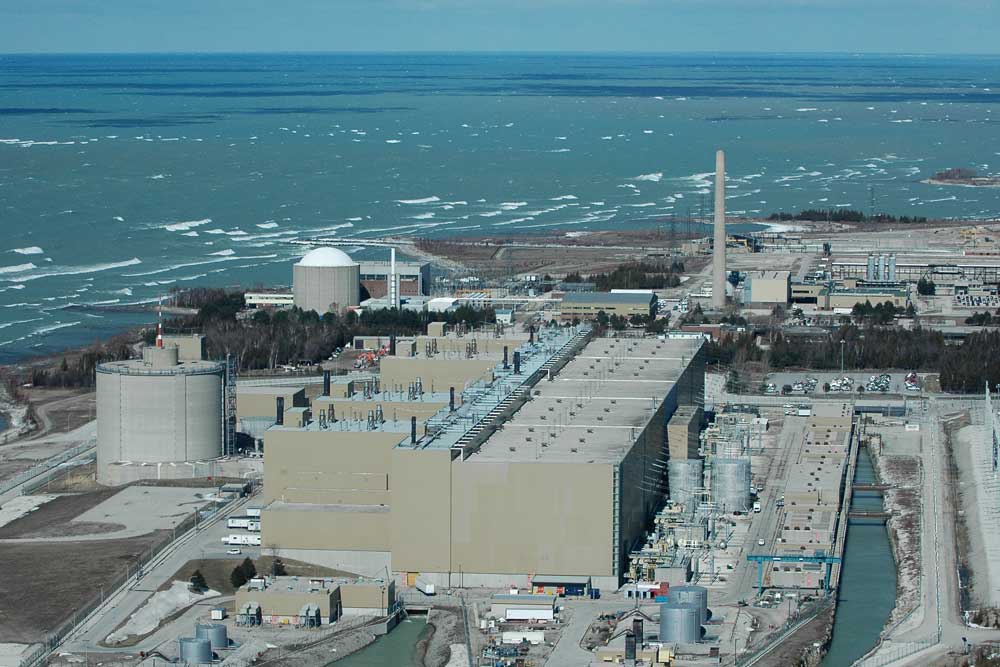Business
Nuclear Power: A Costly Alternative Lacking Climate Solutions

The push for nuclear energy as a climate solution faces increasing scrutiny from experts and environmental advocates. Critics argue that despite claims of being a “clean” energy source, nuclear power is fraught with challenges that render it an inadequate alternative to sustainable energy options.
Supporters often cite that nuclear plants do not emit greenhouse gases during operation. However, when considering the entire life cycle—from uranium mining and transportation to construction, decommissioning, and the management of radioactive waste—the environmental footprint is substantial. As noted by environmental journalist Andrew Nikiforuk, the complexities surrounding nuclear energy extend to geopolitical concerns related to fuel supply and security, alongside the significant waste disposal issues it presents.
A comprehensive analysis in the World Nuclear Report highlights the financial and logistical obstacles associated with nuclear energy. The report reveals that the average time to complete nuclear projects is approximately 70 months, with cost overruns nearing US$1 billion on top of already considerable initial expenditures. Currently, nuclear energy accounts for only about nine percent of global energy production, raising questions about its capacity to contribute significantly to emission reductions in the urgent timeframe required to combat climate change.
The report further emphasizes that in 2024, investments in non-hydro renewable electricity capacity reached a record US$728 billion, dwarfing the global investment in nuclear energy by a factor of 21. During this period, capacities for solar and wind energy increased by 32 percent and 11 percent, respectively, adding a combined 565 GW of new capacity. In contrast, net nuclear capacity additions amounted to a mere 5.4 GW.
The motivations behind the current surge in interest for Small Modular Reactors (SMRs) are diverse. Figures such as Danielle Smith, Premier of Alberta, advocate for SMRs to support increased oilsands production. Additionally, technology billionaires view them as a means to meet the substantial energy demands of data centres and artificial intelligence. Canada has already committed more than US$1 billion to SMR and other nuclear projects; however, the World Nuclear Report warns that the few SMR projects currently under development are struggling financially.
Nikiforuk highlights that achieving an economy of scale for SMRs would require a production ramp-up to thousands of units, a scenario that is not materializing in the near future. Contrary to the notion that SMRs are smaller, cheaper, and safer, studies indicate they may generate more radioactive waste than conventional reactors.
Renewable energy technologies are rapidly advancing, becoming more cost-effective and efficient. Research shows that renewable energy and battery storage costs are declining, while nuclear power expenses continue to rise. The World Nuclear Report suggests that renewable technologies are evolving towards a flexible, decentralized energy system, offering a stark contrast to the centralized nature of traditional fossil and nuclear power systems.
Critics argue that the preference for nuclear energy among certain economic interests is driven by the potential for control and profit inherent in centralized systems. Such dynamics make it easier to transfer the financial burdens of fossil fuel and nuclear power plants onto the public through subsidies and higher energy bills.
Given the imperative to address global warming, investing in renewable energy infrastructure—such as a modern east-west renewable-powered electricity grid in Canada—may provide a more effective solution. While all energy sources have environmental impacts, renewable options like wind, solar, and geothermal are generally cleaner and quicker to deploy compared to nuclear energy.
As David Suzuki, a renowned scientist and environmental advocate, and his collaborator Ian Hanington emphasize, it is crucial to systematically reduce energy and material consumption at an unprecedented pace to mitigate climate change. The current reliance on nuclear power appears increasingly outdated and unsuitable for meeting future energy needs effectively.
For more information about this topic, visit the David Suzuki Foundation website.
-

 Education3 months ago
Education3 months agoBrandon University’s Failed $5 Million Project Sparks Oversight Review
-

 Science4 months ago
Science4 months agoMicrosoft Confirms U.S. Law Overrules Canadian Data Sovereignty
-

 Lifestyle3 months ago
Lifestyle3 months agoWinnipeg Celebrates Culinary Creativity During Le Burger Week 2025
-

 Health4 months ago
Health4 months agoMontreal’s Groupe Marcelle Leads Canadian Cosmetic Industry Growth
-

 Technology3 months ago
Technology3 months agoDragon Ball: Sparking! Zero Launching on Switch and Switch 2 This November
-

 Science4 months ago
Science4 months agoTech Innovator Amandipp Singh Transforms Hiring for Disabled
-

 Education3 months ago
Education3 months agoRed River College Launches New Programs to Address Industry Needs
-

 Technology4 months ago
Technology4 months agoGoogle Pixel 10 Pro Fold Specs Unveiled Ahead of Launch
-

 Business3 months ago
Business3 months agoRocket Lab Reports Strong Q2 2025 Revenue Growth and Future Plans
-

 Technology2 months ago
Technology2 months agoDiscord Faces Serious Security Breach Affecting Millions
-

 Education3 months ago
Education3 months agoAlberta Teachers’ Strike: Potential Impacts on Students and Families
-

 Science3 months ago
Science3 months agoChina’s Wukong Spacesuit Sets New Standard for AI in Space
-

 Education3 months ago
Education3 months agoNew SĆIȺNEW̱ SṮEȽIṮḴEȽ Elementary Opens in Langford for 2025/2026 Year
-

 Business4 months ago
Business4 months agoNew Estimates Reveal ChatGPT-5 Energy Use Could Soar
-

 Technology4 months ago
Technology4 months agoWorld of Warcraft Players Buzz Over 19-Quest Bee Challenge
-

 Business3 months ago
Business3 months agoDawson City Residents Rally Around Buy Canadian Movement
-

 Technology2 months ago
Technology2 months agoHuawei MatePad 12X Redefines Tablet Experience for Professionals
-

 Business3 months ago
Business3 months agoBNA Brewing to Open New Bowling Alley in Downtown Penticton
-

 Technology4 months ago
Technology4 months agoFuture Entertainment Launches DDoD with Gameplay Trailer Showcase
-

 Technology4 months ago
Technology4 months agoGlobal Launch of Ragnarok M: Classic Set for September 3, 2025
-

 Technology4 months ago
Technology4 months agoInnovative 140W GaN Travel Adapter Combines Power and Convenience
-

 Science4 months ago
Science4 months agoXi Labs Innovates with New AI Operating System Set for 2025 Launch
-

 Top Stories2 months ago
Top Stories2 months agoBlue Jays Shift José Berríos to Bullpen Ahead of Playoffs
-

 Technology4 months ago
Technology4 months agoNew IDR01 Smart Ring Offers Advanced Sports Tracking for $169










